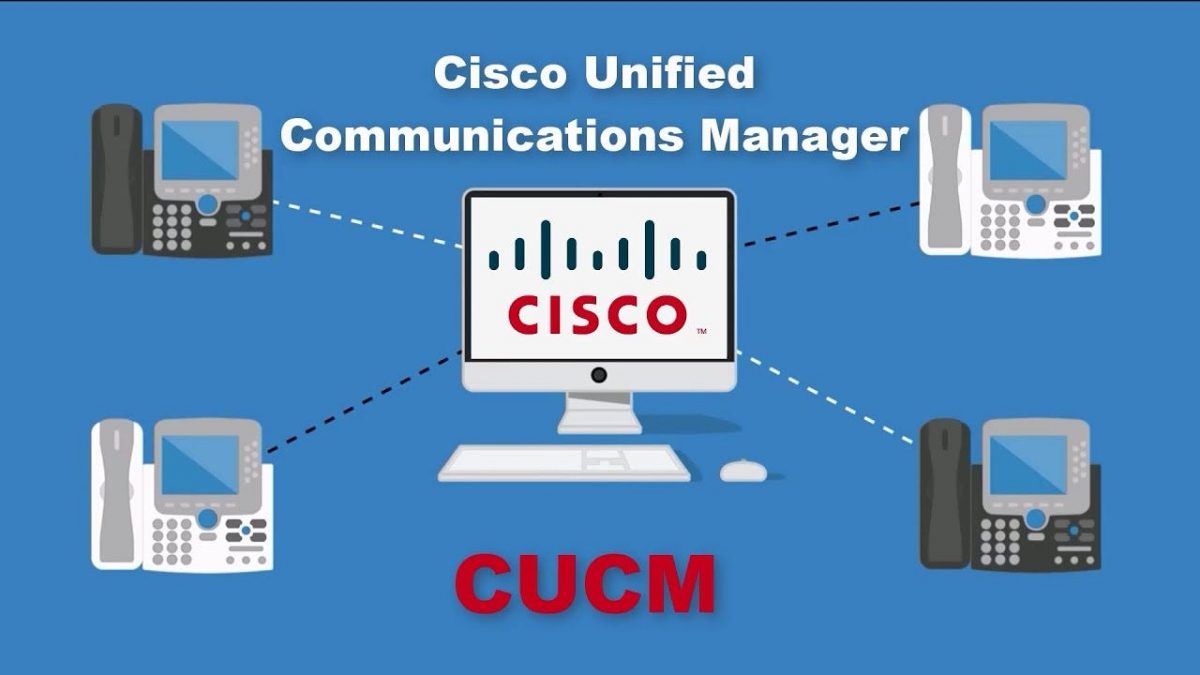Summary
- A vulnerability in multiple Cisco Unified Communications and Contact Center Solutions products could allow an unauthenticated, remote attacker to execute arbitrary code on an affected device.This vulnerability is due to the improper processing of user-provided data that is being read into memory. An attacker could exploit this vulnerability by sending a crafted message to a listening port of an affected device. A successful exploit could allow the attacker to execute arbitrary commands on the underlying operating system with the privileges of the web services user. With access to the underlying operating system, the attacker could also establish root access on the affected device.Cisco has released software updates that address this vulnerability. There are no workarounds that address this vulnerability.
Affected Products
- Vulnerable ProductsThis vulnerability affects the following Cisco products in the default configuration:
- Unified Communications Manager (Unified CM) (CSCwd64245)
- Unified Communications Manager IM & Presence Service (Unified CM IM&P) (CSCwd64276)
- Unified Communications Manager Session Management Edition (Unified CM SME) (CSCwd64245)
- Unified Contact Center Express (UCCX) (CSCwe18773)
- Unity Connection (CSCwd64292)
- Virtualized Voice Browser (VVB) (CSCwe18840)
- For information about which Cisco software releases are vulnerable, see the Fixed Software section of this advisory.
Products Confirmed Not Vulnerable
Only products listed in the Vulnerable Products section of this advisory are known to be affected by this vulnerability.
Cisco has confirmed that this vulnerability does not affect the following Cisco products:
- Customer Collaboration Portal (CCP), formerly SocialMiner
- Customer Voice Portal (CVP)
- Emergency Responder (CER)
- Finesse
- Hosted Collaboration Mediation Fulfillment (HCM-F)
- Packaged Contact Center Enterprise (PCCE)
- Prime Collaboration Deployment (PCD)
- Prime License Manager (PLM)
- Remote Expert Mobile
- Unified Contact Center Domain Manager (CCDM)
- Unified Contact Center Enterprise (UCCE)
- Unified Contact Center Management Portal (Unified CCMP)
- Unified Intelligence Center (CUIC)
Workarounds
- There are no workarounds that address this vulnerability. However, a mitigation is available.Establish access control lists (ACLs) on intermediary devices that separate the Cisco Unified Communications or Cisco Contact Center Solutions cluster from users and the rest of the network to allow access only to the ports of deployed services. The port list will vary depending on the voice products and services in use. Some ports are ephemeral and will change after a restart.For more information, see the Cisco Unified Communications Manager TCP and UDP Port Usage Overview section of the System Configuration Guide for Cisco Unified Communications Manager, Release 14 and SUs or the version that corresponds with the deployed release, or the latest Port Utilization Guide for Cisco Unified Contact Center Solutions.
Additionally, follow the best practices that are described in the latest Security Guide for Cisco Unified Communications Manager or the latest Security Guide for Cisco Unified ICM/Contact Center Enterprise.
While this mitigation has been deployed and was proven successful in a test environment, customers should determine the applicability and effectiveness in their own environment and under their own use conditions. Customers should be aware that any workaround or mitigation that is implemented may negatively impact the functionality or performance of their network based on intrinsic customer deployment scenarios and limitations. Customers should not deploy any workarounds or mitigations before first evaluating the applicability to their own environment and any impact to such environment.
Fixed Software
- Cisco has released free software updates that address the vulnerability described in this advisory. Customers with service contracts that entitle them to regular software updates should obtain security fixes through their usual update channels.Customers may only install and expect support for software versions and feature sets for which they have purchased a license. By installing, downloading, accessing, or otherwise using such software upgrades, customers agree to follow the terms of the Cisco software license:
https://www.cisco.com/c/en/us/products/end-user-license-agreement.htmlAdditionally, customers may only download software for which they have a valid license, procured from Cisco directly, or through a Cisco authorized reseller or partner. In most cases this will be a maintenance upgrade to software that was previously purchased. Free security software updates do not entitle customers to a new software license, additional software feature sets, or major revision upgrades.The Cisco Support and Downloads page on Cisco.com provides information about licensing and downloads. This page can also display customer device support coverage for customers who use the My Devices tool.When considering software upgrades, customers are advised to regularly consult the advisories for Cisco products, which are available from the Cisco Security Advisories page, to determine exposure and a complete upgrade solution.In all cases, customers should ensure that the devices to be upgraded contain sufficient memory and confirm that current hardware and software configurations will continue to be supported properly by the new release. If the information is not clear, customers are advised to contact the Cisco Technical Assistance Center (TAC) or their contracted maintenance providers.
Customers Without Service Contracts
Customers who purchase directly from Cisco but do not hold a Cisco service contract and customers who make purchases through third-party vendors but are unsuccessful in obtaining fixed software through their point of sale should obtain upgrades by contacting the Cisco TAC: https://www.cisco.com/c/en/us/support/web/tsd-cisco-worldwide-contacts.html
Customers should have the product serial number available and be prepared to provide the URL of this advisory as evidence of entitlement to a free upgrade.
Fixed Releases
In the following tables, the left column lists Cisco software releases. The right column indicates whether a release is affected by the vulnerability that is described in this advisory and the first release that includes the fix for this vulnerability. Customers are advised to upgrade to an appropriate fixed software release as indicated in this section.
Unified CM and Unified CM SME: CSCwd64245


The Cisco Product Security Incident Response Team (PSIRT) validates only the affected and fixed release information that is documented in this advisory.
Source:


Stay connected